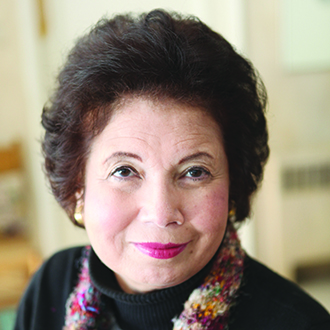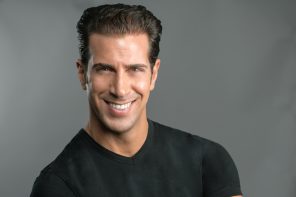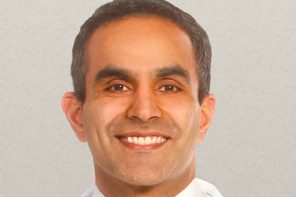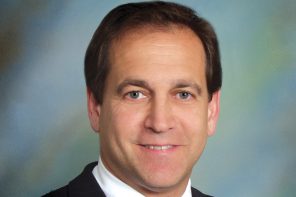Mixing music and medicine comes naturally to Stephen E. Moshman, MD. The professor of clinical medicine at New York Medical College is also a talented violinist who founded and conducts the Albert Einstein Symphony Orchestra.
“Music has always been in my life,” says the Dobbs Ferry resident. “I have always been intrigued by its inner voices and now, at age 72, am as excited and enthused as ever.”
The Albert Einstein Symphony Orchestra, headquartered in the Bronx, is comprised of students, house staff and faculty at the Albert Einstein College of Medicine and its affiliated hospitals. “The orchestra also includes talented musicians from surrounding communities,” Moshman says. “We usually perform four concerts a year at the Robbins Auditorium, attracting several hundred people to each one.”
A true son of Brooklyn, Moshman grew up in Flatbush near the late, lamented Ebbets Field, then the home of the Brooklyn Dodgers, and attended Erasmus Hall High School, whose graduates include Barbra Streisand.
“My mother was a teacher and my father an attorney,” he says. “My father was also a musician who played the violin and viola. I started playing the violin around age 9 or so, but was interested in music long before that.”
The budding musician regularly attended concerts as a young boy and was memorizing scores at 10 or 11. “I did become an excellent violinist, but not of soloist caliber. I enjoyed it tremendously, especially playing second violin, and was concert master for the Erasmus Hall Orchestra.”
Moshman went on to the University of Rochester, where he founded the University of Rochester Baroque Ensemble. “We played at the River Campus several times a year,” he says. “It was a small chamber group and I served as conductor.”
He didn’t decide to pursue medicine as a career until late in his undergraduate studies, which focused on biological research. “After thinking about it, I decided I wanted to go into a field that involved human interaction and chose internal medicine. I attended the State University of New York at Buffalo, getting my M.D. degree in 1969.
“I knew that practicing internal medicine would give me the flexibility to integrate music and medicine,” he says. “After getting my M.D. degree and completing my internship, I was drafted into the U.S. Public Health Service and spent two years working in New York City. This solidified my desire to have a career in direct patient care. I then went on for an internal medicine residency at Montefiore Medical Center in the Bronx, where I spent the next 30 years as an attending physician.”
Teaching internal medicine was one of Moshman’s primary responsibilities at Montefiore, which is affiliated with the Albert Einstein College of Medicine.
“It occurred to me there were a lot of musicians at Einstein,” he says. “Back then, there was a strong interest in music and the arts. I made friends with fellow musicians and in 1982 organized the Albert Einstein Symphony Orchestra.”
The orchestra typically has had 50 to 55 musicians at any one time and performed four times a year at the Robbins Auditorium. “In addition to our core group, we have attracted many internationally known musicians who come to perform with us. Everything has worked beautifully.”
One of the highlights for the orchestra and its audiences are alternate-year performances of Gilbert and Sullivan operas. “Gilbert and Sullivan still brings people out of the woodwork,” Moshman says. “Their music was a favorite of my father’s and we have performed it all, including ‘HMS Pinafore,’ ‘The Mikado’ and ‘The Pirates of Penzance.’”
As conductor and music director for the group, Moshman plans the programs and selects music for the Sunday concerts. Music ranges from early Baroque through the 20th century, from small chamber pieces to larger symphonies and concertos.
But Moshman says he sees what could be clouds on the future horizon for the orchestra.
“For the past two or three years we have had difficulty recruiting medical students,” he says. “I trace this to the falloff in teaching the arts and music in high school and college. Science and technology now rule. Outside interests like music are becoming less important and don’t rank highly in consideration of candidates for medical school. I see this as a real problem in our society’s outlook.
“In my teaching, I used to use a lot of music analogies. Then I realized the students didn’t know what I was talking about. No one learns or speaks a musical language any more. Musicians used to be all over the place, but sadly, this is no longer the case. It’s a shame, because string instruments like the violin and the viola are the backbone of any ensemble and badly needed.”
For now the orchestra is taking a hiatus of about a year to recruit string instrumentalists and will resume its schedule in the fall of 2017.
Besides heading up the Albert Einstein Symphony Orchestra, Moshman teaches five courses at New York Medical College. “I love teaching and never have two days that are alike,” he says. “It’s a pleasure to come to work. Teaching is my first love. What I am doing now, mixing music and medicine is the culmination of everything I had hoped to accomplish. The music keeps me young and the teaching is a great pleasure.”
For more, visit einsteinorch.site50.net.





